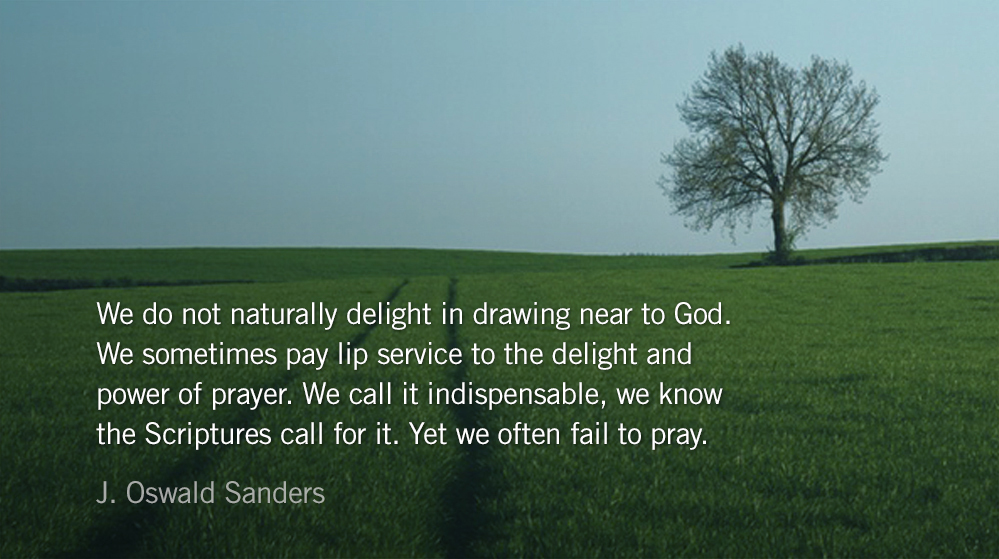No good at all can come from acting before the world and one’s self as though we knew the truth, when in reality we do not.
― Dietrich Bonhoeffer
Lenten Reflection: How to Grow in Prayer
The Park Forum
“Most of us find it hard to pray,” observes J. Oswald Sanders. True enough, but Sanders, in his book Spiritual Leadership, does not let us accept our difficulty in prayer without highlighting the reality it uncovers: “We do not naturally delight in drawing near to God. We sometimes pay lip service to the delight and power of prayer. We call it indispensable, we know the Scriptures call for it. Yet we often fail to pray.”
There are two things needed to grow in prayer, writes Sanders:
Mastering the art of prayer, like anything else, takes time. The time we give it will be a true measure of its importance to us.
All Christians need more teaching in the art of prayer, and the Holy Spirit is the master teacher. The Spirit’s help in prayer is mentioned in the Bible more frequently than any other help he gives us. All true praying comes from the Spirit’s activity in our souls.
Time and teaching—with these two, Sanders sets the tone for prayer as the intersection of the practical with the spiritual. Cultivating a fruitful prayer life is both an action and a response. Sanders explains:
We are to pray in the realm of the Spirit, for the Holy Spirit is the sphere and atmosphere of the Christian life. Much praying is psychical rather than spiritual, in the realm of the mind alone, the product of our own thinking and not of the Spirit’s teaching. But real prayer is deeper. It uses the body, requires the cooperation of the mind, and moves in the supernatural realm of the Spirit.
God has ordained prayer, and we can be confident that as we meet revealed conditions for prayer, answers will be granted. God sees no contradiction between human free will and divine response to prayer. Our obligation to pray stands above any dilemma concerning the effects of prayer.
As we grow in prayer our dependence on God deepens while, simultaneously, our strength in his Spirit grows. Chambers concludes with this fruitful balance:
The praying Christian wields no personal power and authority, but authority delegated by the victorious Christ to whom that faithful believer is united by faith.
Great leaders of the Bible were great at prayer. They were not leaders because of brilliancy of thought, because they were exhaustless in resources, because of their magnificent culture or native endowment, but because, by the power of prayer, they could command the power of God.
Prayer: The Greeting
I will give thanks to you, for you answered me* and have become my salvation. — Psalm 118.21
– From The Divine Hours: Prayers for Springtime by Phyllis Tickle.
Full prayer available online and in print.
Today’s Reading
Exodus 35 (Listen – 4:31)
John 14 (Listen – 4:13)
This Weekend’s Readings
Exodus 36 (Listen – 4:47) John 15 (Listen – 3:20)
Exodus 37 (Listen – 3:14) John 16 (Listen – 4:14)






